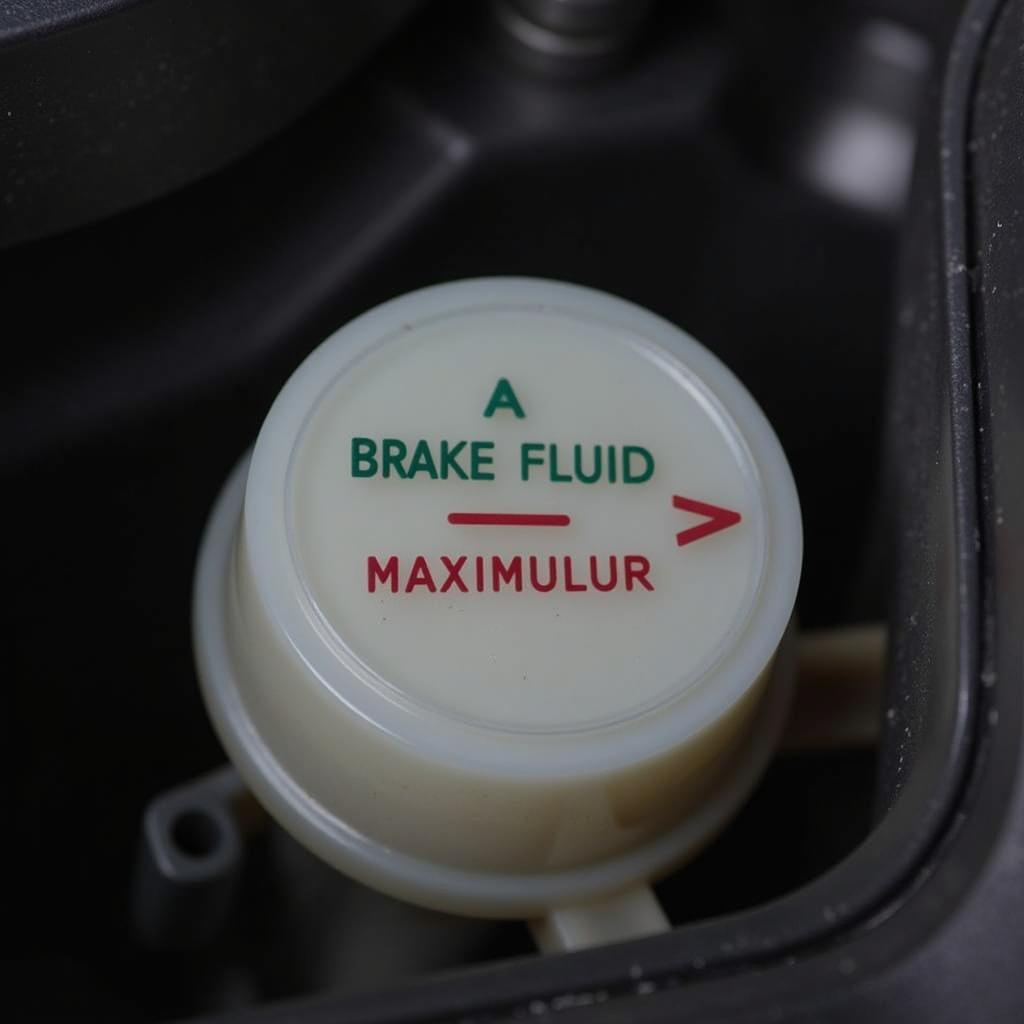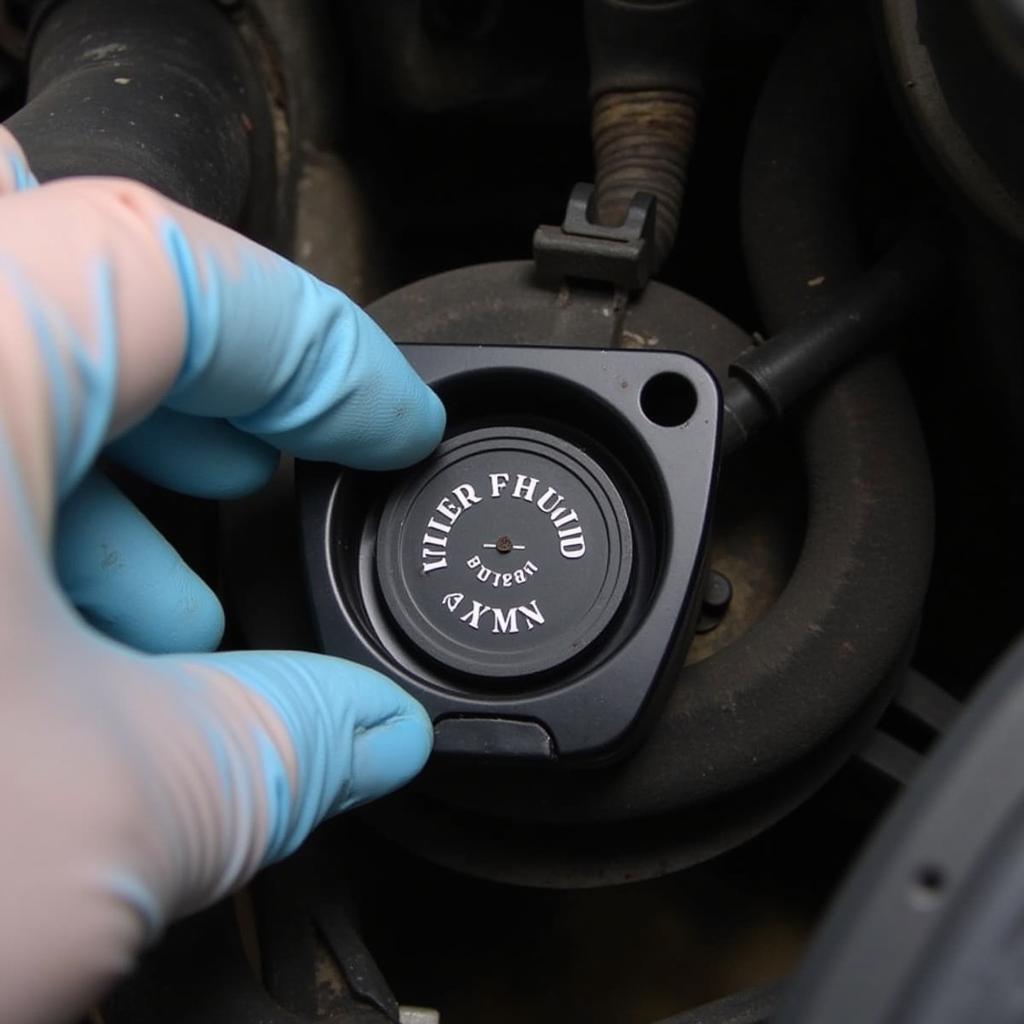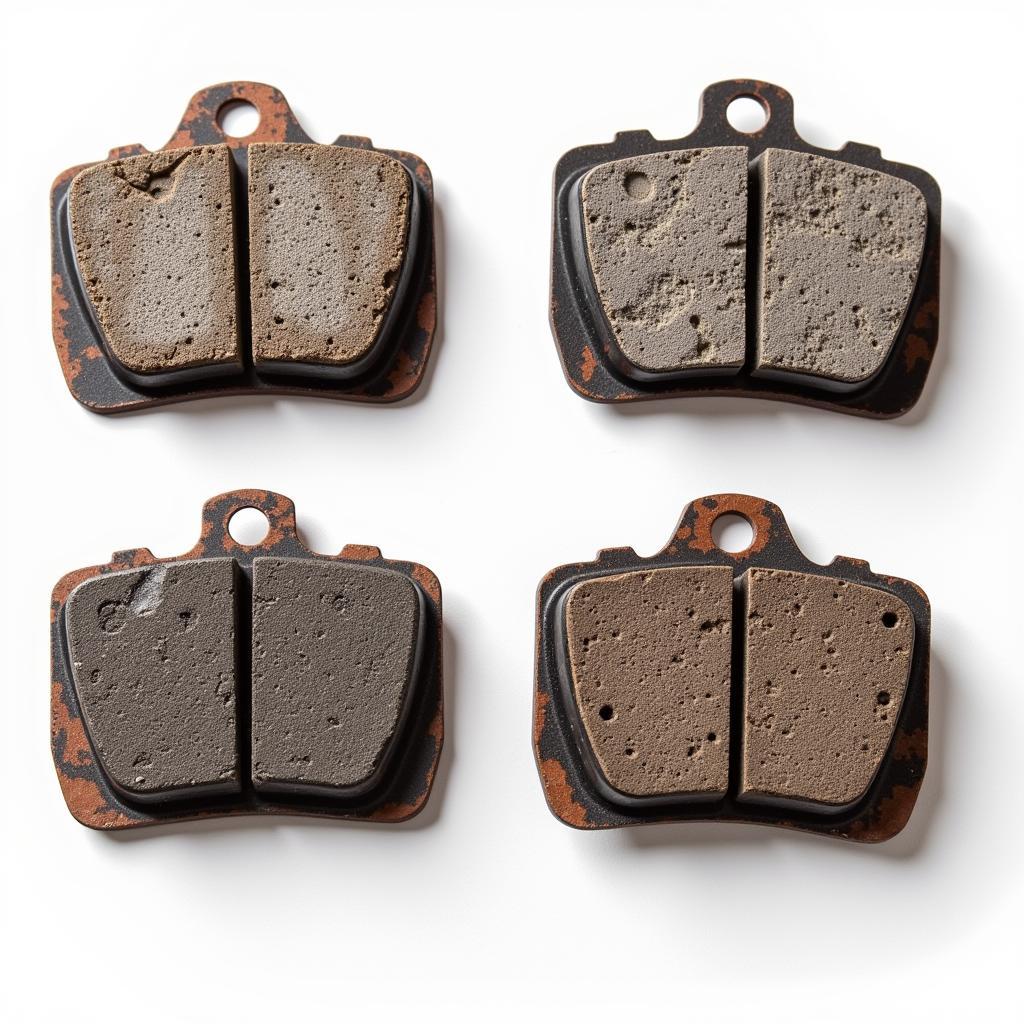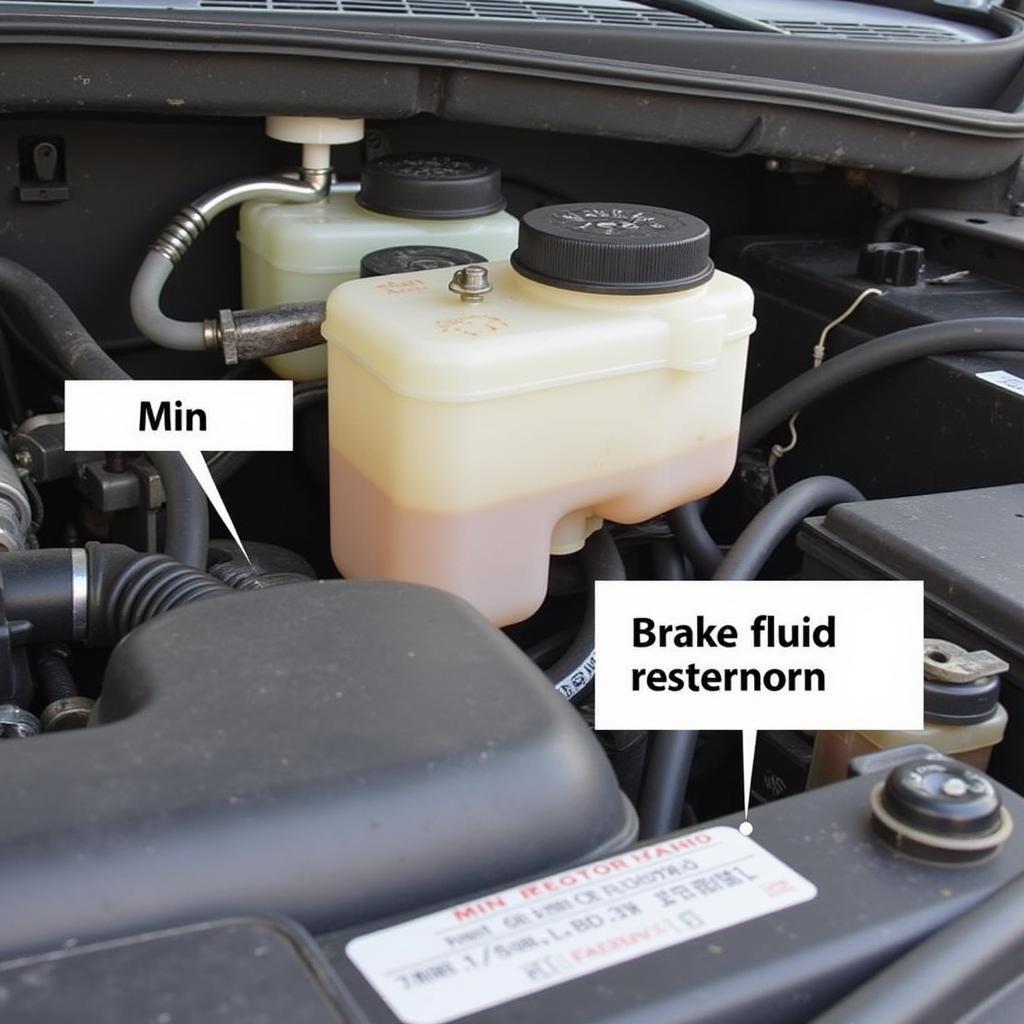A “Passat brake fluid warning” light on your dashboard can be a nerve-wracking experience. This warning light, often accompanied by an audible chime, is your Volkswagen Passat’s way of telling you there’s a problem with the braking system that needs immediate attention. Ignoring this warning could lead to costly repairs and, more importantly, compromise your safety on the road.
This comprehensive guide delves into the common causes of a Passat brake fluid warning light, troubleshooting steps you can take, and potential solutions to get you back on the road safely.
Understanding Your Passat’s Brake Fluid Warning System
Before diving into the causes and solutions, it’s crucial to understand how your Passat’s brake fluid warning system works. The system comprises several components working together to ensure optimal braking performance:
- Brake Fluid Reservoir: This reservoir holds the brake fluid, a hydraulic fluid responsible for transmitting force when you press the brake pedal.
- Brake Lines: These lines connect the brake fluid reservoir to the brakes at each wheel.
- Brake Calipers: The calipers house the brake pads and pistons, which press the pads against the brake rotors to slow down or stop your car.
- Sensors: Your Passat has sensors that monitor the brake fluid level in the reservoir. When the fluid level drops below a safe level, the brake fluid warning light on your dashboard illuminates.
 Passat Brake Fluid Reservoir
Passat Brake Fluid Reservoir
Common Causes of a Passat Brake Fluid Warning Light
While a low brake fluid level is the most common cause, several other factors can trigger the Passat brake fluid warning light:
- Worn Brake Pads: As your brake pads wear down, the brake calipers need more fluid to apply the same amount of pressure. This can cause the fluid level in the reservoir to drop, triggering the warning light.
- Brake Fluid Leak: A leak in the brake lines, hoses, or calipers can lead to a loss of brake fluid, illuminating the warning light.
- Faulty Brake Fluid Level Sensor: Like any other sensor, the brake fluid level sensor can fail, causing the warning light to illuminate even when the fluid level is adequate.
- Worn Master Cylinder: The master cylinder is responsible for pressurizing the brake system. If the master cylinder seals are worn, brake fluid can leak internally, leading to a drop in fluid level.
Troubleshooting a Passat Brake Fluid Warning
Important: If your Passat brake fluid warning light comes on, it’s crucial to address the issue immediately. Driving with low brake fluid or a compromised brake system is incredibly dangerous.
Here are some initial steps to take:
- Check the Brake Fluid Level: Park your Passat on a level surface and engage the parking brake. Carefully open the hood and locate the brake fluid reservoir (refer to your owner’s manual if needed). The reservoir will have “Min” and “Max” markings. If the fluid level is below the “Min” mark, you’ll need to add brake fluid.
 Checking the Brake Fluid Level in a Passat
Checking the Brake Fluid Level in a Passat
-
Inspect for Leaks: Carefully examine the area around the brake fluid reservoir, brake lines, and calipers for any signs of leaks. Look for wet spots, drips, or puddles of brake fluid. Brake fluid is typically clear or slightly yellowish and has a slightly oily texture.
-
Check the Brake Pedal: With the engine off, press the brake pedal several times. The pedal should feel firm and should not sink to the floor. If the pedal feels spongy or goes all the way down, there’s likely air in the brake lines or a more serious issue with the braking system.
What if the brake fluid level is full, and there are no visible leaks? If you’ve checked the brake fluid level and inspected for leaks but haven’t found anything obvious, it’s best to err on the side of caution and have your Passat inspected by a qualified mechanic.
2006 volkswagen passat parking brake warning light
Solutions for a Passat Brake Fluid Warning
The solution for a Passat brake fluid warning light depends on the underlying cause:
-
Low Brake Fluid: If the fluid level is low, and there are no leaks, carefully top off the reservoir with the recommended brake fluid for your Passat model (check your owner’s manual). If you’re uncomfortable adding brake fluid yourself, a mechanic can do this for you.
-
Worn Brake Pads: If your brake pads are worn, they will need to be replaced. You can check the thickness of your brake pads yourself, but it’s generally recommended to have a mechanic inspect them.
-
Brake Fluid Leak: A brake fluid leak requires immediate attention. If you find a leak, it’s crucial not to drive your Passat and have it towed to a qualified mechanic to diagnose and repair the leak.
-
Faulty Components: If the brake fluid level sensor, master cylinder, or any other component is faulty, it will need to be replaced.
vw passat parking brake warning light
Importance of Using the Correct Brake Fluid
Using the correct brake fluid for your Passat is crucial for maintaining the integrity and performance of your braking system. Volkswagen recommends using DOT 4 brake fluid for most Passat models. Using the wrong brake fluid can damage the braking system components and lead to costly repairs.
“Using the correct brake fluid and keeping up with regular maintenance, including brake fluid flushes, can extend the life of your braking system significantly,” says master mechanic Jake Peterson. “It’s a small investment that goes a long way in ensuring your safety on the road.”
2003 vw passat brake warning light
Preventing Future Passat Brake Fluid Warnings
Here are some preventative measures to minimize the chances of encountering a Passat brake fluid warning light in the future:
- Regular Brake Inspections: Have your Passat’s brakes inspected by a qualified mechanic at least once a year, or more frequently if you drive in harsh conditions.
- Brake Fluid Flush: Volkswagen recommends flushing the brake fluid in your Passat every 2 years or 20,000 miles to maintain optimal braking performance and prevent corrosion in the system.
- Pay Attention to Warning Signs: Be mindful of any changes in your Passat’s braking performance, such as a spongy brake pedal, unusual noises when braking, or a vibrating brake pedal. Address these issues promptly to prevent more serious problems.
how to reset 2003 vw passat brake pad warning
Conclusion
A Passat brake fluid warning light should never be ignored. By understanding the common causes, troubleshooting steps, and potential solutions, you can address the issue promptly and ensure your safety on the road. Remember, regular maintenance and timely repairs are key to keeping your Passat’s braking system in top condition and preventing costly repairs down the line.


